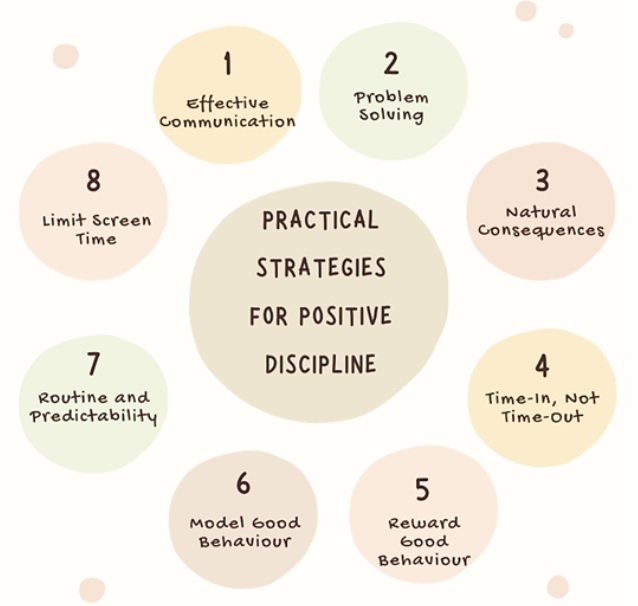Discipline In Preschool Classroom: 8 Behaviour Strategies To Adopt!
28th August 2024
The foundation of a successful early childhood education program is discipline. For preschoolers, behavior management is essential to their entire development as well as their academic performance. A loving and supportive atmosphere may be created for young children to flourish by putting suitable behavior management strategies into practice.
Teachers must be prepared with positive behavior guidance techniques to create a conducive learning environment. Teachers may assist preschoolers in understanding what is expected of them by establishing consistent routines and explicit expectations.
Understanding Preschool Behaviour

Source: linkedin.com
Preschoolers are at a developmental stage where they are learning social skills and examining limits. It's normal for children to push boundaries and exhibit a range of emotional expressions. Teachers must be prepared with positive behavior guidance techniques to create a conducive learning environment. Teachers may assist preschoolers in understanding what is expected of them by establishing consistent routines and explicit expectations.
Before you move to the topic, can we ask you a quick question? Do you follow us on Social Media? If not, then you’re missing out on a lot of informative content. We regularly share upgraded educational content, tips, feedback, and more. Check us out by clicking the profiles here - Facebook / Twitter / LinkedIn / Pinterest / Instagram / YouTube
8 Effective Behaviour Management Strategies
Here are a few behavior management strategies that can help you establish discipline in your classroom:
1. Positive Reinforcement
Positive reinforcement is one tactic that works well. This entails rewarding and recognizing positive conduct, which motivates kids to repeat it. Positive behavior is reinforced, for example, when you compliment a youngster for sharing toys or paying attention. This method focuses on boosting confidence and self-worth, which are critical for toddlers' emotional development.
2. Create A Supportive Learning Environment
Preschool behavior is significantly influenced by the physical surroundings. Less distractions and more involvement may be achieved in a well-structured and engaging classroom. Carefully decorated classrooms can also help with behavior control by offering places set apart for specific activities and visual clues. Preschoolers' energy may be constructively directed by creating spaces for reading, creative play, and group activities.
3. Teacher- Child Relationships
Effective behavior management with preschoolers requires developing solid relationships. Children are more inclined to comply and obey instructions when their teachers appreciate and understand them. In the classroom, respect and trust are fostered by taking the time to have meaningful conversations, listening intently, and demonstrating empathy.
4. Consider Environmental And Situation Factors
Behaving well doesn't happen by itself. You'll discover that half of the work of maintaining classroom discipline is already accomplished when you use your classroom management abilities to set up pupils for success. Children experience less stress in a peaceful, orderly school setting, motivating them to keep that feeling of well-being.
5. Encourage Praise And Positive Attention
Positive reinforcement demonstrates to kids that good conduct benefits them as well, which encourages them to behave well in the daycare. Additionally, giving them examples of excellent behavior in others as well as in themselves, helps children develop a mental model of good behavior. This helps them understand what good behavior looks like in real life.
6. Stay In Control With Rational Detachment
It is your responsibility as the adult in the classroom to ensure that you keep things under control by remaining composed and non-emotional in the face of inappropriate behavior. Children who project these feelings may retreat or carry on with their misbehavior since it makes them feel guilty, ashamed, and blamed. Instead, concentrate on upholding empathy and understanding while reiterating age-appropriate penalties.
Long-term, improved results will result from youngsters continuing to feel validated and supported thanks to your instruction and good intentions.
7. Practice Active Ignoring
When little misbehavior is actively ignored and great behavior is consistently reinforced, children learn that they must earn your attention by doing their best. Make sure you finish the lesson after ignoring the youngster by keeping an eye out for the next opportunity to compliment the same child on good conduct.
8. Enforce Effective Consequences
When you provide clear, consistent, and proportionate penalties up front, your children will comprehend and comply with your rules. Getting youngsters to start imitating the conduct you wish to see is the aim of enforcing consequences. Consequences should be directly related to the conduct in question to promote growth. For example, if a kid is misusing a toy, it would make sense for him to be prohibited from using it for the remainder of the day.
Help Your Kids Learn Discipline
One of the greatest ways to keep a joyful preschool environment, develop relationships with parents, and nurture each child to their full potential is to assist youngsters in modeling excellent conduct in your early development center and beyond. As educators with an Online International Teaching Diploma, you should be able to foster healthy behaviors in your students and direct them toward being responsible human beings.
We believe education should be accessible for everyone. That’s why we don’t charge for our blogs. Find the right course that will help you in your career with us, contact us at - 1800–212–6400. You can mail us at act@asiancollegeofteachers.com.
Written By : Sanjana
Leave a Reply

